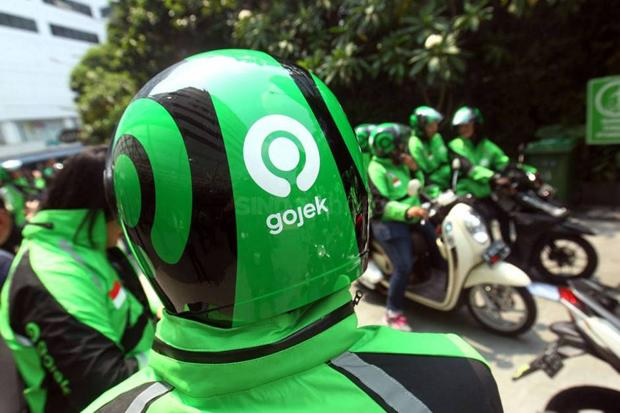Research by the Demographic Institute of FEB UI: Go-Jek Ecosystem Helps MSMEs in Makassar
Hana Fajria – Public Relations of FEB UI
DEPOK – Friday, (09/10/2020) The online media makassar.sindonews.com, on the Ekbis channel, published the results of a research by the Demographic Institute of FEB UI in Makassar, titled “Gojek Ecosystem Helps MSMEs in Makassar“. Following is the article :
MAKASSAR – Gojek continues to support economic resilience during the COVID-19 pandemic in Makassar. Initiatives have been launched to help small, micro and medium enterprises (MSMEs) in Makassar adapt, which enable them to survive the conditions caused by the COVID-19 pandemic and remain optimistic about growth.
Before the pandemic, using the gross regional domestic product (PDRB) calculation method, the total production value generated by the Gojek ecosystem in Makassar reached Rp 4.8 trillion or contributed to 3% of Makassar’s PDRB in 2019.
Regional VP for Gojek Strategy in Eastern Indonesia, Anandita Danaatmadja said, more than 90% of Gojek’s business partners felt fully assisted by the technology available in the Gojek ecosystem to survive the pandemic.
“We believe that the ease and security of access in the activation process will further support MSME partners to start a business, adapt and be able to expand their business. In the latest GoBiz application, MSME partners can take advantage of the independent register feature to register, check verification status, and activate accounts independently,” she explained in a virtual press conference, entitled Gojek ecosystem supports Makassar’s economic resilience through sustainable contributions.
Anandita explained, in addition to technology, Gojek also provided non-technology support to help the resilience of MSMEs during the pandemic.
“As a technology company, Gojek also provides non-technology support, such as encouraging increased demand from consumers through promo periods and training for GoFood MSMEs through the GoFood Partner Community (Kompag),” she explained.
The presentation delivered by the Regional VP for Gojek Strategy in Eastern Indonesia, Anandita, is in line with the main findings of the latest research by the Demographic Institute of the Faculty of Economics and Business, Universitas Indonesia (LD) entitled, “The role of Gojek digital ecosystem in Makassar’s economy before and during the COVID-19 pandemic,” Turro S Wongkaren as Head Researcher of the Demographic Institute, Faculty of Business Economics (FEB), Universitas Indonesia explained,
“This research shows the role of the digital economy ecosystem in helping MSMEs, especially micro businesses, survive during the pandemic. This pandemic condition tests the resilience (resilience) and adaptability of business players in times of crisis,” he explained.
An example of such adaptation is to change traditional businesses into digital ones. It also appears that business players are quite realistic in seeing the extensive impact of the pandemic, but they also remain optimistic that by being in a digital ecosystem, their businesses can continue to grow in the future, and their income will return to what it was before the pandemic.
The LD research shows how GoFood acts as an economic buffer in Makassar for those whose income has been affected by the pandemic, especially private and professional workers.
Research found that 44% of GoFood Partners surveyed had only joined during the COVID-19 pandemic (since March 2020). Among these partners, 93% are micro-scale entrepreneurs. Furthermore, 44% of them were entrepreneurs who started their business for the first time.
The LD research also found that the majority of MSME partners thought that they were able to adapt to the pandemic situation because they were in the Gojek ecosystem. MSMEs who feel able to adapt during the pandemic by becoming partners are 90% of GoFood’s MSME partners, 96.7% of MSME social seller partners, GoSend user, and 91.8% of GoPay MSME partners.
This is due to the Gojek partners’ consideration towards Gojek’s technological and non-technological solutions that help the sustainability of their businesses. GoFood MSME partners benefit from the technology features of self-promotion arrangements (69%) and the GoFood partner community (35%).
Meanwhile, MSME social sellers who are also GoSend users have greatly benefited from the service features, both within the city (82%) and the intercity Service (37%). Meanwhile, GoPay MSME Partners benefit from the features of receiving non-cash payments (83%) and the GoBiz application (60%).
According to the LD research results, the researcher also explained that the majority of partners would continue to partner with Gojek for the long term (87%), as they noticed that they could survive with Gojek (90%). Around 89% of partners tend to be optimistic that with Gojek, their business will continue to grow, their income will return to the same level as before the pandemic, and be able to provide for themselves and their families.
The LD research also revealed that 94% of driver partners in Makassar received assistance from Gojek during the Covid-19 pandemic and 86% of partners appreciated this assistance.
“Social sellers” are individual or micro-scale entrepreneurs, who use mass technology such as social media, to sell their products by targeting their networks such as friends, family and consumers. The spirit of mutual cooperation is very much reflected in the Gojek ecosystem through efforts to help each other in the midst of the pandemic. Where 47% of driver partners still provide social assistance to their families, neighbors and fellow partners,” said Anandita.
Also, Partners are also optimistic that their income will return to pre-pandemic (78%) levels and 82% of driver partners are optimistic that their partnership with Gojek can meet the needs of their families. As many as 92% of driver partners will also continue their partnership with Gojek for an indefinite period of time.
Complementing Gojek’s support for MSMEs, Gojek through the J3K initiative has involved all elements in the Gojek ecosystem (Driver Partners, GoFood Merchants and customers) to prioritize three important elements, namely maintaining cleanliness, health, and safety to prevent the spread of COVID-19 while providing services to its customers in Makassar.
(am)

